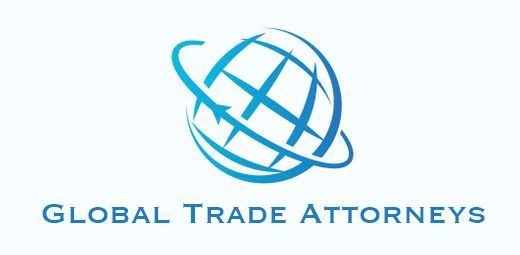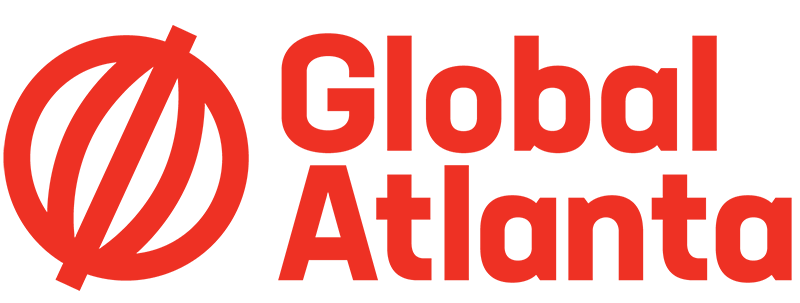October 27, 2025
In the complex world of international trade, compliance with customs regulations is crucial. A skilled customs lawyer offers invaluable guidance in navigating these intricacies to ensure the smooth operation of your business transactions across borders. As businesses seek to expand into global markets, understanding the nuanced regulations becomes more pivotal than ever. The global trade landscape is fraught with challenges that require deep legal knowledge and strategic planning. Engaging a skilled lawyer isn't just a matter of compliance; it is a crucial component of sustaining success and avoiding costly pitfalls in international trade.
Navigating the Complexity of International Trade Laws
Understanding Global Trade Regulations
Global trade regulations are a patchwork of national and international laws that dictate the flow of goods across borders. Each country has its own set of rules that can vary drastically, complicating international transactions. Importers and exporters must navigate treaties, tariffs, quotas, and more, which frequently change based on political and economic conditions. Understanding these diverse regulations requires specialized knowledge, which a customs lawyer provides.
Interpreting Customs Laws for Compliance
Customs laws serve as the backbone of trade compliance, imposing critical requirements on the import and export of goods. Compliance ensures that goods pass seamlessly through customs without costly delays or penalties. Customs laws are designed to protect national security, economic interests, and public health, presenting a complex web of obligations for businesses. Non-compliance can result in the forfeiture of goods and stiff financial penalties, emphasizing the importance of expert guidance.
Applying Expert Legal Interpretation
The labyrinth of international trade laws necessitates expert interpretation to ensure compliance. While many businesses attempt to handle legal navigation internally, the lack of specialized knowledge often results in errors. Laws can vary significantly between countries and change rapidly, further complicating compliance efforts. According to the UNCTAD, global trade hit a record $33 trillion in 2024. A lawyer has the expertise needed to interpret complex legal texts accurately, ensuring your business remains compliant and competitive.
Managing Documentation with a Customs Lawyer
Handling Trade Agreement Documentation Accurately
Trade agreements are designed to facilitate and streamline international commerce by reducing tariffs and easing restrictions. However, they also introduce complex documentation requirements that must be meticulously managed. A lawyer can guide businesses through the compliance landscape of free trade agreements (FTAs) and bilateral treaties. They help ensure that paperwork aligns with legal stipulations, leveraging agreements for trade advantage rather than hindrance.
Classifying and Valuing Goods Correctly
Properly classifying and valuing goods is critical to international trade operations. Misclassification or incorrect valuations can lead to excessive duties or the illegal importation of goods. A skilled customs lawyer assists in ensuring classifications align with the Harmonized System (HS codes) and are valued based on correct valuation methods. By minimizing the potential for costly errors and penalties, businesses can optimize their tax liabilities.
Navigating Tariff and Non-Tariff Barriers Effectively
Businesses must navigate both tariff and non-tariff barriers when trading internationally. Tariffs can affect costs significantly and must be calculated accurately to preserve competitiveness. Non-tariff barriers such as quotas, embargoes, and stringent standards further complicate trade. A customs lawyer's insight into these barriers offers businesses a strategic edge, minimizing costs and ensuring compliance.
Mitigating Risks and Avoiding Penalties
Preparing for Customs Audits and Investigations
Customs audits and investigations are essential functions designed to ensure compliance and detect fraud in international trade. Encountering an audit can be daunting, especially without sufficient knowledge and expertise. A lawyer helps businesses understand the key elements that auditors examine and prepares them for potential inquiries. Their guidance ensures that companies can present accurate records, minimizing the risk of penalties.
Addressing Seizures and Penalties Strategically
Seizures and penalties pose significant financial and operational threats to companies involved in international trade. When faced with such challenges, a customs lawyer provides invaluable support, advocating for the business and negotiating resolutions. They examine the causes of seizures to determine the most appropriate legal response, aiming to reduce penalties or secure releases. With their expertise, businesses can better navigate complex legal proceedings and protect their interests.
Resolving Trade Disputes Efficiently
The inability to resolve trade disputes amicably can result in costly and protracted legal battles. A lawyer is a critical ally in dispute resolution, offering negotiation skills and legal insights to find favorable outcomes. Their involvement ranges from mediation and arbitration to defending against claims in foreign jurisdictions. By facilitating resolution paths outside of traditional litigation, customs lawyers help businesses save time and money.
Enhancing Efficiency and Strategic Advantages
Streamlining Customs Procedures Systematically
Efficient customs procedures are vital for minimizing delays and optimizing operational flow. A customs lawyer provides expertise in streamlining these procedures through strategic planning and compliance. By anticipating potential challenges, they develop solutions that align with both legal obligations and business needs. This streamlining results in reduced processing times, lowering costs and improving customer satisfaction. Efficient customs management engenders a competitive edge in international markets by ensuring timely delivery and reliable service.
Expediting Clearance Processes Smoothly
Faster clearance processes translate to a quicker time-to-market, enhancing a company's competitiveness. Customs lawyers play an essential role in expediting clearance processes through detailed documentation and compliance strategies. Their proactive measures prevent bottlenecks and ensure smooth shipment transitions across borders. Effective legal counsel significantly contributes to the agility of global trade operations, supporting business growth.
Planning Strategic Advantages for Market Competitiveness
Strategic planning is a vital aspect of gaining competitive advantages in international trade. Customs lawyers contribute significantly to this planning process by identifying opportunities for cost reductions and market entry. Their legal expertise supports the alignment of business strategies with compliance requirements, fostering company interests. By anticipating changes in regulatory environments, lawyers help companies adapt and maintain market leadership. Well-informed strategic planning positions businesses to excel in a competitive global economy.
Staying Updated with Evolving Regulations
Tracking Changes in Trade Policies and Agreements
Staying updated with evolving trade policies and agreements is crucial for businesses operating internationally. Changes in regulations can occur unexpectedly, demanding immediate attention and adaptation. A lawyer continually tracks these policy shifts, providing necessary updates and insights to businesses. By keeping abreast of changes, companies can adjust operations in compliance with new laws and take advantage of any favorable shifts. Legal representatives ensure that businesses remain informed and strategically positioned in a dynamic regulatory landscape.
Implementing Compliance Practices Proactively
Compliance practices involve adopting strategic measures that promote legal adherence and operational excellence. A customs lawyer guides businesses in implementing these practices, which range from record-keeping protocols to internal audits. By establishing clear compliance guidelines, companies can reduce legal risks and enhance their regulatory reputation. These practices create an environment that supports diligent compliance monitoring and encourages consistent improvement. Through careful planning and execution, businesses foster sustainable compliance and operational resilience.
Leveraging Legal Networks and Resources
Legal networks and resources offer invaluable support for navigating the complex landscape of international trade. A well-connected lawyer taps into these networks, providing businesses access to global insights and expert collaboration. This connectivity enhances the lawyer's ability to offer informed advice and identify emerging trends. Legal resources facilitate staying updated with changes, tackling unique challenges, and sharing practices across industries. Leveraging these networks ensures that legal representation remains robust and globally informed, fostering more effective trade operations.
Engaging a skilled customs lawyer provides more than compliance and helps protect your business, streamline operations, and navigate the complexities of international trade. Having expert guidance is essential to managing risks and seizing opportunities. Learn how Global Trade Attorneys can support your business and ensure our success in the competitive world of international trade.


